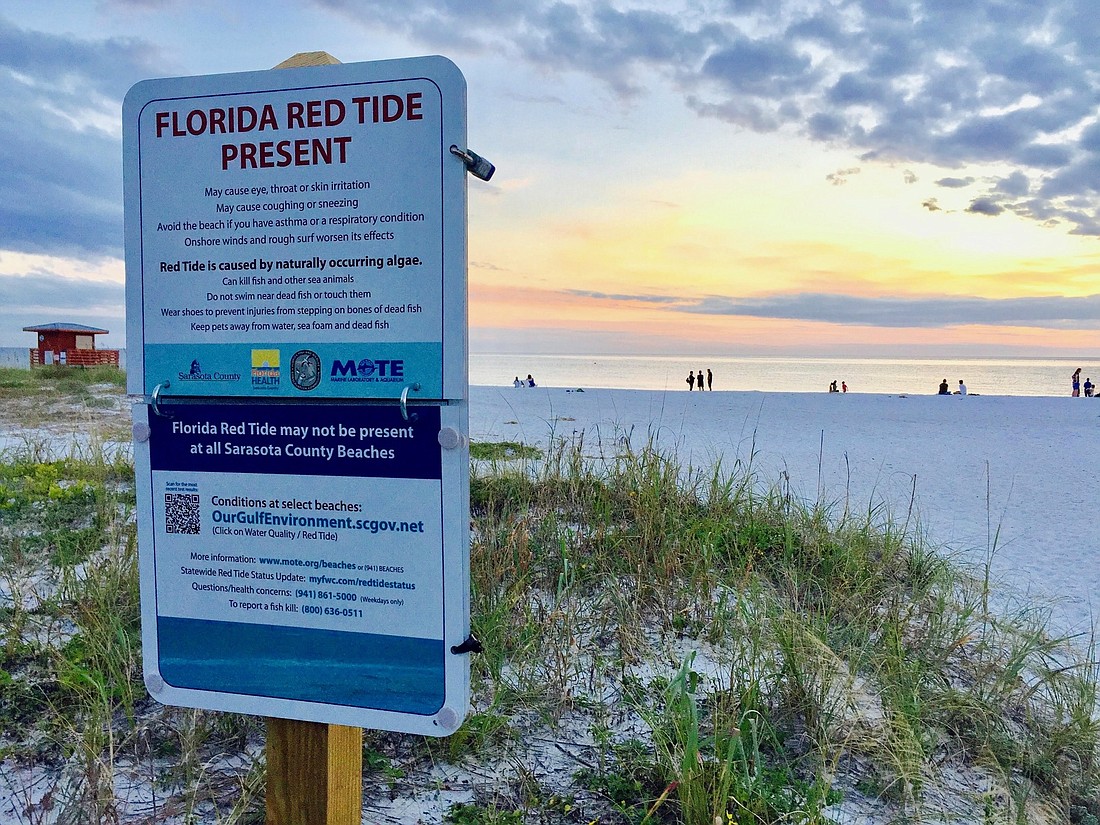- January 28, 2026
-
-
Loading

Loading
 File photo
File photo
There are elevated levels of red tide in the waters along Sarasota’s coast, the Florida Department of Health in Sarasota County announced today.
The health department said tests of beach water samples from Monday led to the announcement. Health officials will post signs at area beaches Friday to inform the public of the presence of red tide.
The affected beaches include:
In a release, the health department said the red tide may cause mild short-term respiratory issues for some individuals, including eye, nose and throat irritation. Individuals with respiratory issues may experience more severe symptoms, but symptoms generally dissipate when an individual leaves the area where red tide is present, the release said.
While red tide is present, the health department recommended against swimming around dead fish. The department advised residents with chronic respiratory issues to consider staying away from the beach and said residents living in beach areas should close their windows and run their air conditioner. Pets and livestock should stay away from water, sea foam and dead sea life, and people should not eat molluscan shellfish or distressed or dead fish from affected waters.
More information on red tide and the status of local beaches is available on the Florida Fish and Wildlife Conservation Commission website and the Mote Marine Laboratory and Aquarium website.